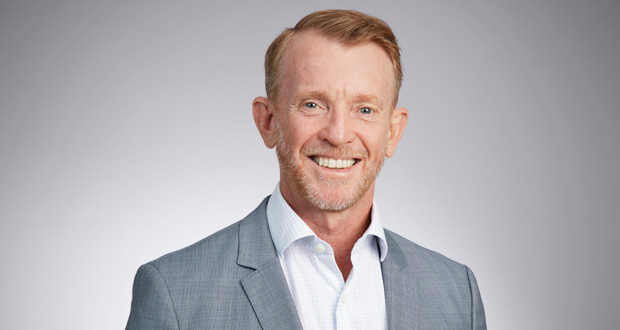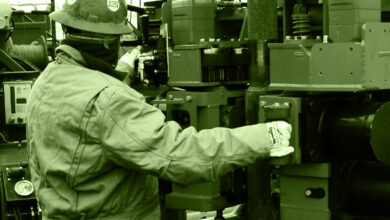Wayne Bauer, Vantage Drilling: Investments in AI poised to drive safety innovations

By Stephen Whitfield, Senior Editor
To quote a famous song from long ago, Wayne Bauer has been everywhere. He grew up in the mining industry of Western Australia, doing an apprenticeship in the mines as a teenager and spending his young adulthood as a seismic field worker and a boilermaker for various mining companies. He’s worked in construction. He’s spent time as an adviser for various organizations in the oil and gas industry, representing operators, drilling contractors and service companies. His career in oil and gas has taken him all over the world, from Malaysia to the Middle East.
Through it all, Mr Bauer, who now serves as VP of QHSE and Sustainability at Vantage Drilling, has had a front-row seat to the innovations that industries have made in safety. However, to him, few industries rival oil and gas in terms of the investment in technologies designed to protect personnel from harm.
In particular, he noted the industry’s adoption of monitoring systems and wearable devices that can alert companies when personnel are in close proximity to harmful equipment in the red zone. He also noted the industry’s increasing use of artificial intelligence (AI) and machine learning systems as a potential step change.
“We’re probably one of the best industries out there with regards to safety innovations,” Mr Bauer said. “We’re always trying new things. We’ve got anywhere between 120 and 200 people living on a steel platform in the middle of the ocean, in the middle of nowhere. We have to ensure the initiatives are in place to prevent those people from injuring themselves. But where I see the big difference is in the quality of those new technologies. We’re not afraid to spend money on innovative safety solutions.”
New frontiers in technology
In particular, Mr Bauer noted the use of generative AI systems, a form of AI that uses generative models to produce text, images or other data. Unlike conventional AI systems, which rely on predefined rules and datasets, generative AI systems can recognize patterns from existing data and apply that recognition to new data ingested into the system in real time.
This pattern recognition could have a significant impact on safety. For instance, Mr Bauer said a generative AI system can help provide rig crews with instant access to safety protocols: “This stuff will allow us to go in and analyze our systems and our processes and give people these immediate responses.”
Vantage Drilling is currently investigating how generative AI systems can be used to catalogue its safety protocols and improve its operations. While generative AI is not yet commonly used within the drilling industry, Mr Bauer said he believes widespread adoption is likely to come in the near future. “I think we’re well on the way with generative AI systems,” he said. “We have a lot of companies doing a lot of really great stuff, including Vantage Drilling, and the process is well under way to seeing greater adoption.”
The need to communicate
Apart from investing in new technologies, Mr Bauer said collaboration and communication are also important elements of the industry’s push toward greater improvements in safety. He noted that Vantage Drilling has an open-door policy with its personnel, which helps senior management understand workforce needs.
“One of my guys told me recently that, in all of his years working in the drilling industry, he had never met his VP of QHSE before he came to Vantage. Now he sees me almost every week,” he said. “We really have to work closely with our operations teams and the guys on the rig to determine what works and what doesn’t work out.”
In his role as Chairman of the IADC Southern Arabian Peninsula Chapter (SAPC), a position he has held since 2020, Mr Bauer has also prioritized listening to the chapter’s members to provide outlets for them to learn more about the industry’s work. For instance, after noting interest from the chapter’s Contracts Workgroup, a “Contracts 101” seminar was held during a quarterly meeting in February 2024.
Additionally, with members expressing an interest in incorporating sustainability into the chapter’s functions, the group has been collecting total CO2-equivalent (tCO2e) data from its Q1 and Q2 chapter meetings with the support of a carbon credit capital company, to measure the tCO2e footprint for each of those events. The chapter plans to purchase carbon credits to offset the tCO2e produced at chapter meetings. Mr Bauer said he expects the first round of carbon credit purchases to happen before the Q3 chapter meeting in September this year.
“My role as Chairman is supported by a fantastic group of individuals, so I want to make it a fun environment for them, so that they want to stay and contribute. They can be creative. They can be innovative. As Chairman, I encourage them to develop ideas that will benefit our membership. Our mantra at the chapter is to ensure that everything we do adds value to being a member of the IADC SAPC.” DC




